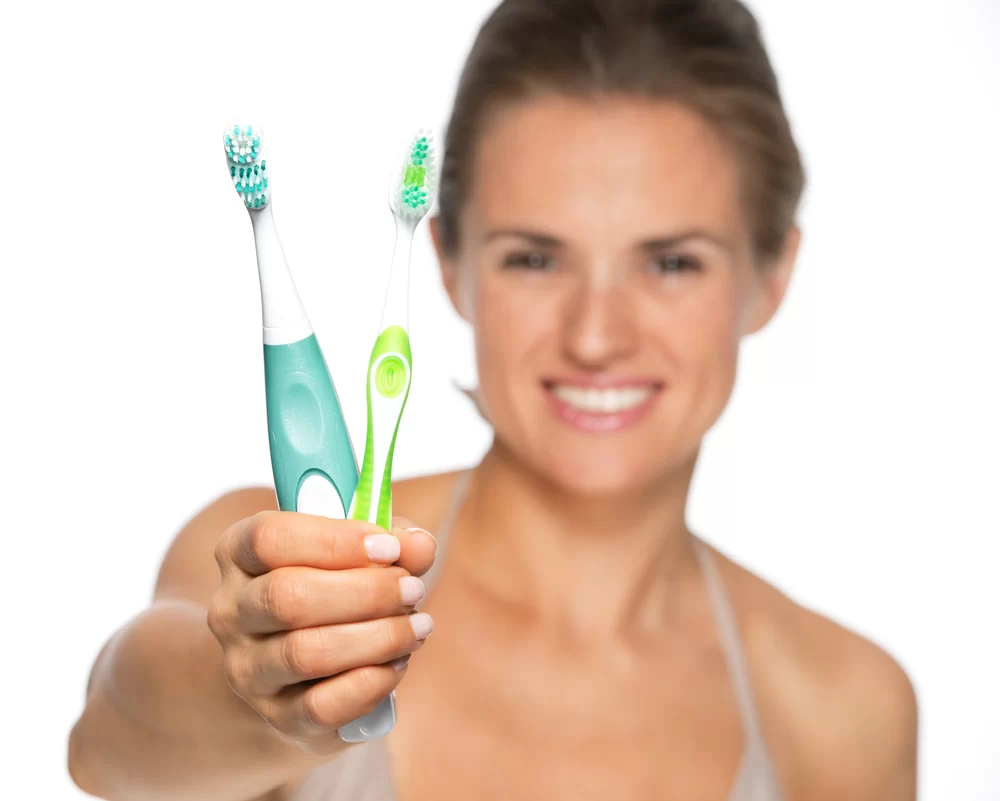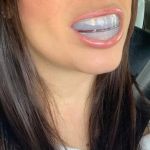
Why You Should Use a Soft-Bristled Toothbrush for Better Dental Health
When it comes to dental hygiene, one of the most common questions people ask is: "What type of toothbrush should I use?" The answer might surprise you, especially if you're used to using a stiff-bristled toothbrush for its "extra cleaning power." In reality, a soft-bristled toothbrush offers numerous advantages that not only protect your teeth but also your gums. Let’s explore why a soft-bristled toothbrush should be an essential part of your oral care routine.
1. The Science Behind Soft-Bristled Toothbrushes
At first glance, it may seem that stiff-bristled toothbrushes would be more effective at removing plaque and food particles. After all, more pressure should mean a cleaner surface, right? However, dental experts agree that the opposite is true. Soft-bristled brushes are gentler and more effective at removing plaque without causing damage to your teeth or gums.
The bristles of a toothbrush are designed to work with a scrubbing action that dislodges debris from your teeth. Hard bristles, however, can be too abrasive, causing enamel wear and even gum recession over time. The soft bristles, on the other hand, are gentle enough to clean your teeth while protecting the sensitive gum tissue and enamel.
2. Protecting Your Gums with Soft Bristles
One of the primary benefits of using a soft-bristled toothbrush is its ability to protect your gums. Hard-bristled brushes can cause your gums to recede, exposing the roots of your teeth. This can lead to increased sensitivity and a higher risk of cavities. The soft bristles ensure that the brushing process is less abrasive and more gentle on the gums, keeping them intact and healthy.
In fact, brushing too aggressively with a hard-bristled toothbrush can lead to "toothbrush abrasion," a condition where the gum line recedes, and the enamel becomes thinner. Soft bristles are much less likely to cause these issues, keeping both your teeth and gums safe from long-term damage.
3. Ideal for Sensitive Teeth and Gums
If you have sensitive teeth or gums, a soft-bristled toothbrush is the best option. Many people with sensitive teeth find that stiff-bristled brushes exacerbate their discomfort, especially when brushing after consuming hot, cold, or sweet foods. Soft bristles provide a gentle cleaning experience while still effectively removing plaque, allowing you to clean your teeth without triggering pain or sensitivity.
Soft-bristled brushes are also a good choice for individuals who suffer from gum disease or have recently undergone dental treatments, such as teeth whitening or fillings. These individuals need to avoid any additional irritation, and soft bristles help ensure a more comfortable experience.
4. Effective Plaque Removal Without Damaging Tooth Enamel
Many people believe that stiff-bristled toothbrushes remove plaque more effectively. While hard bristles might seem to scrub away more debris, they can also damage the protective enamel on your teeth. Tooth enamel is the hard outer layer that protects your teeth from decay and cavities. Using a soft-bristled toothbrush provides an efficient way to clean your teeth without compromising the integrity of your enamel.
Studies have shown that soft-bristled brushes remove plaque just as effectively as their hard-bristled counterparts. The key is the technique – gentle, circular motions combined with soft bristles can eliminate plaque buildup without causing any unnecessary damage to your teeth.
5. The Benefits for Children and Older Adults
Soft-bristled toothbrushes are especially beneficial for children and older adults. For children, soft bristles ensure that their delicate teeth and gums are not harmed while learning how to brush properly. Teaching kids the correct brushing technique is essential, and using a soft-bristled toothbrush sets the stage for a lifetime of good oral habits.
For older adults, soft-bristled toothbrushes are ideal, particularly if they are dealing with receding gums or tooth sensitivity. As we age, our gums naturally recede, and soft bristles offer the gentleness needed to avoid further gum damage while still maintaining good oral hygiene.
6. A Real-life Example: How a Soft-Bristled Toothbrush Changed One Family’s Oral Health
Take the story of the Hernandez family, for example. Lisa, a mother of two, had always been a fan of hard-bristled toothbrushes, thinking they provided a more thorough clean. However, after her son Alex started complaining of gum tenderness and pain, Lisa switched to a soft-bristled toothbrush. Within a few weeks, Alex noticed a significant reduction in his gum sensitivity, and his brushing habits improved as well.
Lisa followed suit and made the switch, and the entire family saw improved gum health and less plaque buildup. Their dentist praised the decision, pointing out that the gentle bristles were helping protect their gums while still keeping their teeth clean. The Hernandez family now swears by soft-bristled toothbrushes, knowing that they help maintain their oral health without causing unnecessary harm to their gums and enamel.
7. Choosing the Right Soft-Bristled Toothbrush
When selecting a soft-bristled toothbrush, there are a few factors to keep in mind to ensure you get the most out of your brushing routine:
- Brush Size: Choose a brush with a head size that comfortably fits your mouth. A smaller head allows for better access to the back teeth and more effective cleaning.
- Handle Design: Look for a toothbrush with a handle that fits comfortably in your hand. Some toothbrushes are designed with ergonomic grips to provide more control during brushing.
- Bristle Arrangement: Toothbrushes come with different bristle patterns, such as straight or angled bristles. Find a design that works best for your brushing technique.
- Softness of Bristles: Be sure to choose a toothbrush labeled as "soft" to ensure the bristles are gentle on your gums and teeth.
Many dentists recommend toothbrushes that have been approved by the American Dental Association (ADA), as these brushes have been rigorously tested for safety and effectiveness. Look for the ADA Seal of Acceptance when choosing a toothbrush to ensure it meets high standards of oral care.







 City Line Dentistry4.0 (54 review)
City Line Dentistry4.0 (54 review) McIntosh Phillip G DMD4.0 (12 review)
McIntosh Phillip G DMD4.0 (12 review) Smiles of Carpentersville3.0 (26 review)
Smiles of Carpentersville3.0 (26 review) Periodontics & Implant Center of Manasquan4.0 (311 review)
Periodontics & Implant Center of Manasquan4.0 (311 review) Kirk Family Dentistry4.0 (487 review)
Kirk Family Dentistry4.0 (487 review) Rockstar White Teeth Whitening5.0 (5 review)
Rockstar White Teeth Whitening5.0 (5 review) The Importance of Oral Health Education During Pregnancy for a Healthy Pregnancy
The Importance of Oral Health Education During Pregnancy for a Healthy Pregnancy Best Tips for Brushing Your Teeth Properly for Healthy Gums: Essential Techniques for Oral Health
Best Tips for Brushing Your Teeth Properly for Healthy Gums: Essential Techniques for Oral Health Why Skipping Dental Checkups Can Lead to Bigger Oral Health Problems
Why Skipping Dental Checkups Can Lead to Bigger Oral Health Problems Advantages of Porcelain Dental Restorations
Advantages of Porcelain Dental Restorations How Can Diabetes Cause Tooth and Gum Problems? Preventing and Managing Oral Health Issues
How Can Diabetes Cause Tooth and Gum Problems? Preventing and Managing Oral Health Issues Healthy Habits for Promoting Good Oral Health and Hygiene: Tips for a Healthy Smile
Healthy Habits for Promoting Good Oral Health and Hygiene: Tips for a Healthy Smile